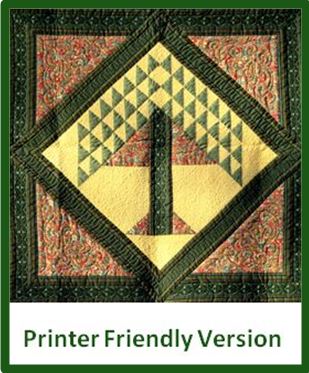"Germans Are Bad"
Rita Luks
Sometimes it was frightening just to get home from school. What if the Germans or the Japs were hiding behind the hedge just past McCoy's garden and were waiting to ambush you just before you got to Burgess's driveway. You didn't know what was on the other side before you got there no matter how hard you tried to see through the solid branches of the tall cedars. You could run to get past there faster but then you might step on a stone, or something else that was booby-trapped and just blow yourself up. At least if you walked you could avoid such a tragic end and at the same time you could step on cracks and help win the war. It worked best if you stepped on the exact center of the crack and chanted loudly in just the right rhythm, "Step on a crack and break a German's back." Or, if it was a day you decided to fight the Japs, it worked just as well to say, "Step on a crack and break a Jap's back!" It was also possible to alternate the enemy from crack to crack and help fight both wars at the same time. That sure gave a lot of power to someone who was just a kid.
I just needed to get home. They needed to be warned.
Henny Penny never had a more urgent message to tell the king. This was life and death. I heard it at school and needed to tell Daddy and make sure the rest family knew about it, too.
The supper table was the place to get to everyone at the same time. They'd all be there. We always were. Mother at the head, Daddy to her left and Me Too Bruce in his high chair next to him. I'd be on her right scrunched in by the stove behind me and Andy who sat next to me. Judy would be at the other end where us younger kids could keep an eye on her to see what she ate so we'd know what we liked to eat. Then we'd wait to see if she decided the milk was sweet or sour so we'd know if we should drink it.
That was where I made my announcement. "All Germans are bad people." It was all over school and now my family knew about it, too.
Daddy, who really was wise enough to be king because he knew everything, asked if I knew any Germans. Of course I didn't. Germany was way over seas. How would I know any Germans?
He said we knew lots of Germans. Grandma Singer who lived across the street and grew beautiful flowers that she lovingly over crowded into the vases she placed on the altar for Sunday mass was from Germany. Grandma Koreck, who lived just the other side of Aunt Mary and Uncle John next door and also grew beautiful flowers, even though hers were never in church, was also from Germany. If Grandma Singer carried homemade bread across the street to our front door, you could count on Grandma Koreck to reach the back door at almost the same time with fresh baked strudel. These two wonderful Grandmas who tried to out do each other in keeping our family in baked goods, were Germans?
And what about Gaeths who lived just past Koreks? Did I think they were bad? We ran down the street and stood on the edge of their lawn to watch the train, hoping the engineer and caboose man would wave to us. Ruth Gaeth was so blond and beautiful and Rollie was the tallest person in the world. Eleanor always talked with me. Their parents usually weren't outside but they must be nice if the teenagers were. Germans? Really?
Lots of people, like the Hertzlers that went to our church were Germans. It didn't make sense that bad people would be in church. From that point on a lot of things didn't make sense. It didn't make sense to say that Germans are bad people when I personally knew that wasn't true. Maybe some Germans, but not all of them. It made sense not to say, "All Germans are bad people." All isn't a very good word to use when you are talking about people.
It was very confusing when Daddy drove us past Hertzler's farm to see German prisoners of war working in their sugar beet fields, while soldiers with guns were guarding them.
Maybe Daddy knew how the Germans felt because when he asked my Grandpa if he could marry my mother, Grandpa said it was fine with him but he should keep in mind that, "There are two things the people in this town hate—Polaks and Catholics."
—2005

